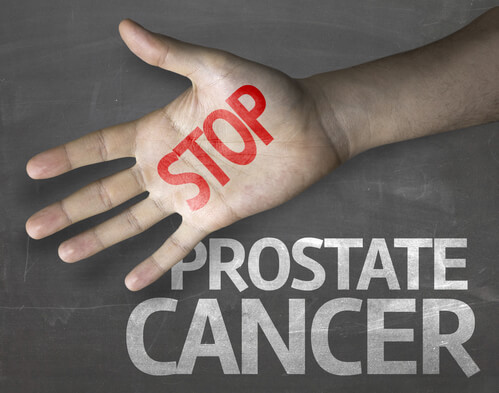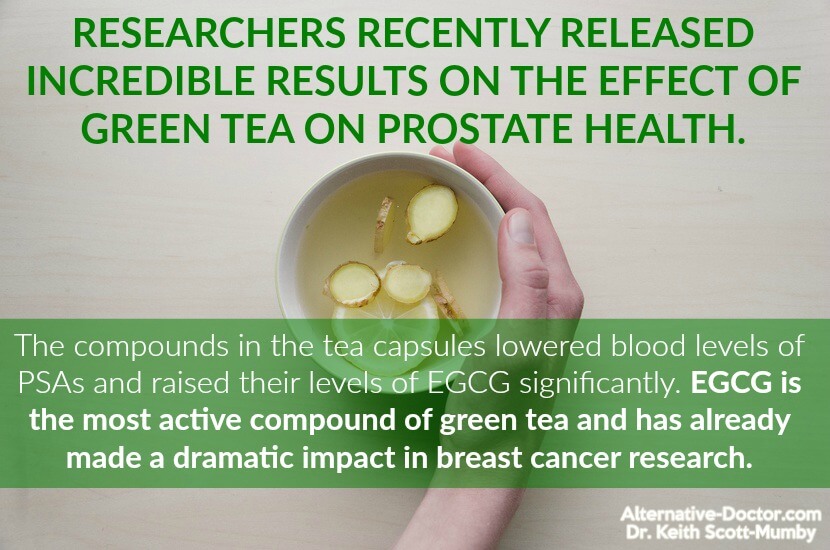I want to talk to you about simple ways you can protect your prostate. The sooner you take steps to safeguard your prostate health, the longer it’s going to function for you.
You really (really) want it to function.
 The prostate is a male-specific gland responsible for the production of semen. It is about the size of a walnut and sits under your bladder. Its’ location and the way it wraps around your urethra means that it directly influences urine and semen flow.
The prostate is a male-specific gland responsible for the production of semen. It is about the size of a walnut and sits under your bladder. Its’ location and the way it wraps around your urethra means that it directly influences urine and semen flow.
As men age, there are three main issues that can go wrong with the prostate. They range from mild to deadly but none of them are pleasant.
- Enlarged Prostate: This is when the prostate is bigger than it is supposed to be. This is also referred to as benign prostatic enlargement (BPE) because it is non-cancerous. BPE is common for men over the age of 50 (approximately 40%) and more common for men over the age of 70 (approximately 75%). Simple changes to your lifestyle and diet can help you ease the symptoms. Medication and surgery are also options.
- Prostatitis: Inflammation or infection of the prostate can lead to this non-cancerous condition. It can present with fever and you should seek medical attention immediately. Taking an antibiotic is usually helpful. This temporary problem is most common in men between 30 and 50 years old.
- Prostate Cancer: When abnormal cells begin to multiply rapidly for no reason, the result is cancer. Annually, more than 1.1 million men are diagnosed with prostate cancer around the world. This specific cancer accounts for more than 15% of all cancer cases in men and is more prevalent in developed nations. Screening for a particular antigen (prostate specific) has led to earlier detection and fewer deaths.
Signs and Symptoms of Declining Prostate Health
- Feeling the need to urinate more often than is typical for you
- Suddenly needing to urinate at night
- Feeling as if you are “struggling” to start urinating
- Strain while urinating, having a weak flow, or taking a long time to finish
- The sensation that your bladder isn’t fully “empty” of urine
- Leaking of urine or a sudden urgency to urinate
- Pain or burning during urination or ejaculation (less common symptom)
- Difficulty in getting or maintaining an erection (less common symptom)
- Signs of blood in your urine or semen (less common symptom)
Problems with pain during ejaculation, getting or maintaining an erection, or blood in the output are more common symptoms in other conditions such as diabetes, kidney stones, or infection. Mention these symptoms to your doctor to rule out issues with prostate health.
Known Risk Factors for Prostate Cancer
- Age (older than 50)
- Family history of prostate cancer (father or brother), early onset prostate cancer (younger than 60), or incidences of breast cancer due to BRCA1 or BRCA2
- Race (African American men have a higher rate of prostate cancer)
- Obesity
- Tobacco use
Only 5-10% of all cancers are linked to genetic causes. The majority of patients diagnosed fall into the “lifestyle” category. For instance, it has not been scientifically proven that tobacco use and obesity increase your risk of developing all cancers (as well as other major diseases).
Experts estimate that more than half of all cancer is preventable with attention to diet and lifestyle habits. This means that taking a universal approach to your health will protect your prostate gland as well as the rest of your body!

Prostate Health “Diet”
- Eat 5 servings daily of fruits and vegetables (fresh or frozen)
- Get more red foods such as tomatoes (even canned) for lycopene
- Consume healthy fats (nuts, seeds, coconut oil, olive oil, and butter)
- Choose more poultry, eggs, and beans rather than red meat
- Enjoy omega-3 abundant fatty fish (salmon, tuna, and mackerel)
- Cut back on processed dairy products
- Limit “junk” food and fast food as much as possible
- Get rid of all sodas and energy drinks
- Eliminate hydrogenated vegetable oils (especially canola) and margarine
- Avoid processed meats from your eating plan
- Pay attention to portion size. Half of your plate should be vegetables, one-quarter should be protein, and up to one-quarter carbohydrates.
- Exercise regularly even if you choose to take a walk, swim, or cycle (everything counts)
Green Tea Does It Again
Researchers with Moffitt Cancer Center recently released their incredible results on the effect of green tea on prostate health. The compounds in the tea capsules given to study participants lowered blood levels of prostate-specific antigens (PSAs) and raised their levels of epigallocatechin-3-gallate (EGCG) significantly. EGCG is the most active compound of green tea and has already made a dramatic impact in breast cancer research.
This information comes on the heels of an estimated 220,000 new cases of prostate cancer in the United States alone. Our highest statistic ever.
The population in Asian countries have the lowest prostate cancer rates in the entire world. Those who move to other nations such as the United States and abandon their typical eating plan watch their cancer risk rise rapidly.
Prostate health is something you need to think about today, right now. Don’t wait. No matter how old (or young) you are, there are steps you can take to protect this little gland that can change your life in more ways than one.
